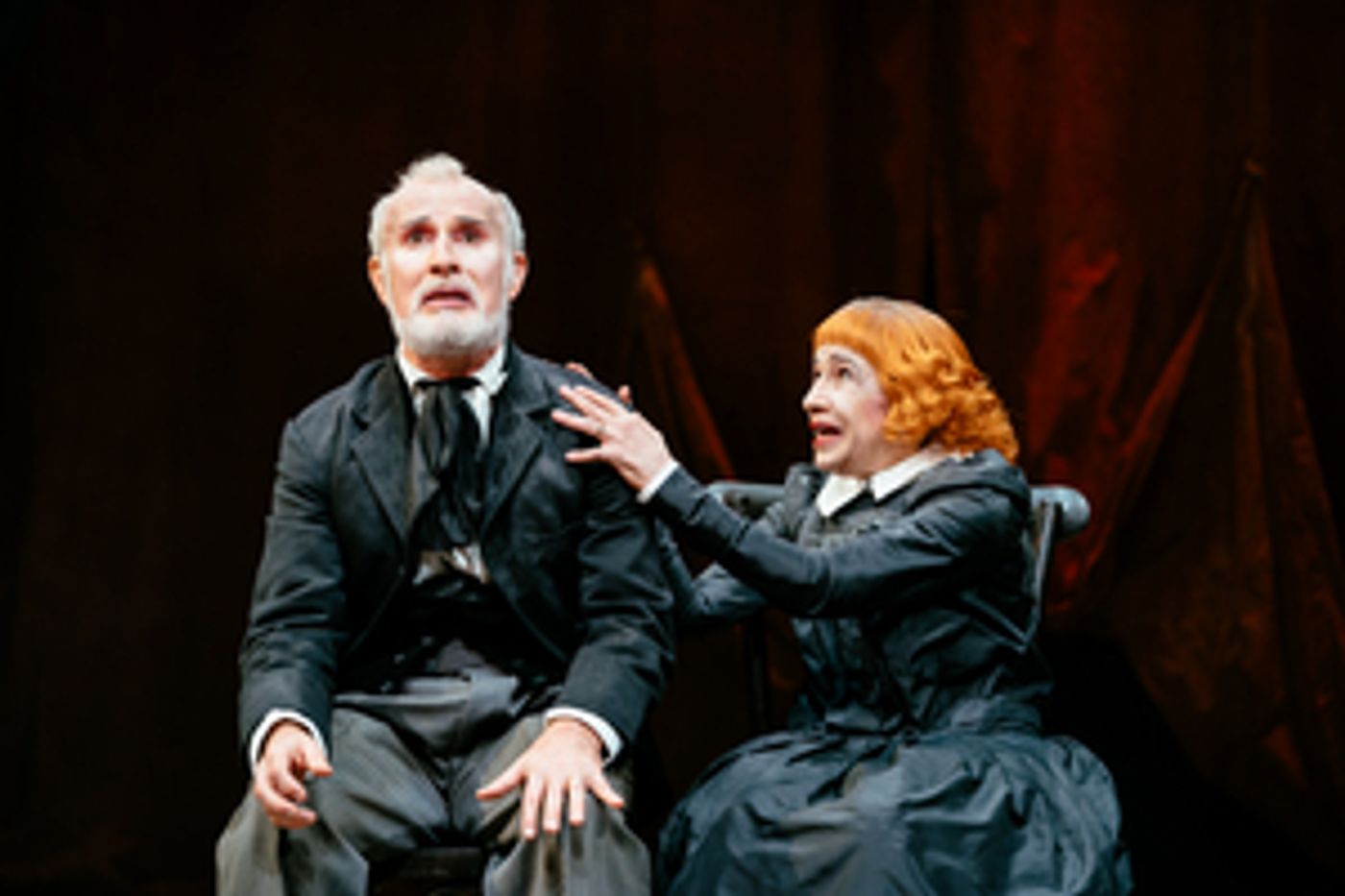Review: THE CHAIRS, Almeida Theatre
Ionesco's farce has much to say about life today in this loose adaptation

![]() They've left the theatre tannoy on, so we overhear the backstage bickering of two actors - he doesn't want to go on, but she does. They're playing an old married couple (in real life, they are an old (well, oldish) married couple) and, eventually, she wins her case. If you hadn't clocked things were going to get meta when you read Eugène Ionesco's name on the playbill, you knew now.
They've left the theatre tannoy on, so we overhear the backstage bickering of two actors - he doesn't want to go on, but she does. They're playing an old married couple (in real life, they are an old (well, oldish) married couple) and, eventually, she wins her case. If you hadn't clocked things were going to get meta when you read Eugène Ionesco's name on the playbill, you knew now.
Much of what we see over the next 100 minutes or so reminded me of Picasso's line about taking four years to learn how to paint like Raphael, but a lifetime to paint like a child. As Kathryn Hunter and Marcello Magni fuss over the seating arrangements for a host of invisible guests arriving to hear an invisible speaker, we witness comedy stripped back to its fundamental elements and then reconstructed for our pleasure.
As the hapless pair attempt to accommodate the tides of humanity sweeping in as the rising seas crash around them, their antics triggered so many associations. There's a hint of one of Ernie Wise's Plays What I Wrote (I could almost see Diana Rigg or Glenda Jackson as a glamorous guest at one point) with Toby Sedgwick, another Complicité alumnus, in Eric Morecambe's old role as the reluctant, cynical stagehand, crossing on to the set from time to time.
The foibles of the invisible guests at the party conjured memories of the Party Quirks game on Whose Line Is It Anyway, the hosts' arguing, underpinned by a tragic, unbreakable bond, recalled Rik Mayall and Ade Edmundson's Bottom and the whole thing had a very strong whiff of Beckett about its deliberate artifice.
So Theatre of the Absurd it may be, but it's also Theatre of Theatre (if you will), an insight in real time as to what builds comedy - and, of course, its alter ego, tragedy.
But it's not all academic! Director and translator, Omar Elerian, takes plenty of liberties in his adaptation, adding contemporary references (one analysis of how we've created antagonistic cultural tribes recalled the celebrated "Forces of Anarchy" scene from The Fall And Rise Of Reginald Perrin) and Magni's flustered fussing and Hunter's winning wit garner plenty of laughs. You need to buy into the conceit, but, once you do, these brilliant physical comedians give plenty back.
There's a coda to send us into the night with more thoughts, Sedgwick transformed from stagehand to emperor, the mute Speaker of the original play given voice and referencing the criticality of honesty in public life. Referencing Guy Debord's The Society of the Spectacle, he asked (through a fourth wall that had been porous all evening) if anyone had read the book - nobody admitted to it, even in Islington. But not only had I read it, I had recalled its ideas a couple of hours earlier when looking at the property p*rn in the windows of Upper Street's relentless march of estate agents.
It's not the theatre that's absurd, it's the lives we've somehow fallen into, invisible guests at someone else's preposterous work event party - which was, I guess, Ionesco's point 71 years ago and it's just as relevant now.
The Chairs is at the Almeida Theatre until 5 March
Photo Helen Murray
Reader Reviews
Videos

